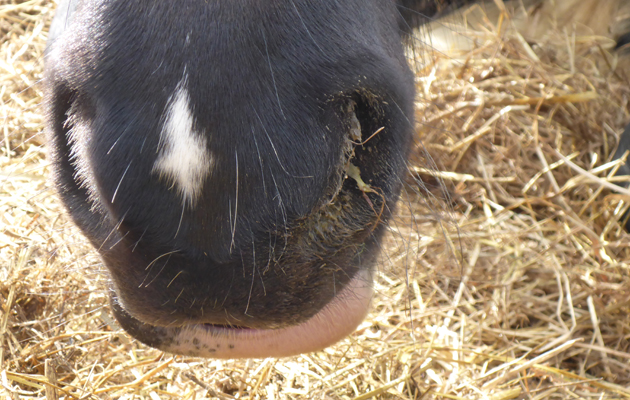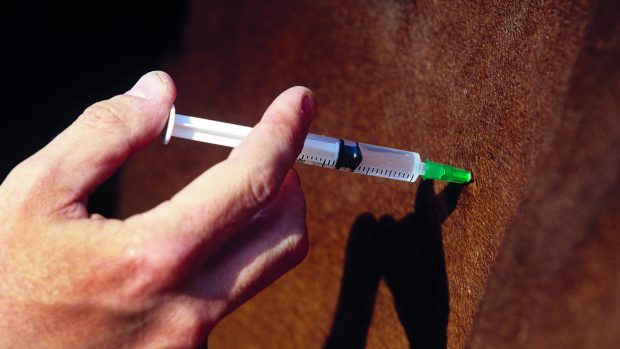A horse in Hertfordshire was put down this week (27 October) after contracting equine herpes virus.
Vets were called to the yard in mid to north Hertfordshire on Wednesday morning after the horse was found to be looking dull and unsteady on his feet.
By evening, the horse was unable to stand, and was transferred to an isolation unit on the Royal Veterinary College’s (RVC) Hawkshead campus.
“Unfortunately in this case the horse had to be put down,” said the RVC’s Dr Imogen Johns (pictured, above left), who treated the animal.
The livery yard where the horse was kept has been closed, with no movement allowed.
“Horse owners should be concerned and aware that there has been an outbreak, but the yard has been shut,” said Dr Johns.
“Our only slight concern is the horse went to a local show last Sunday and could have infected others there, or picked up the virus at the show.”
Yesterday (28 October) another horse on the same yard has been found with a temperature and was being tested for the equine herpes virus.
Under the Horserace Betting Levy Board (HBLB) rules a yard with an outbreak must remain closed for 28 days from the date the last case was identified.
“Hopefully this is a contained outbreak, but vets looking after the yard are continually monitoring it,” said Dr Johns.
Equine herpes is known as the “silent infection” as horses can carry the virus without showing any signs.
“Stressful events can cause the virus to reactivate,” said Dr Johns, who is an Royal College of Veterinary Surgeons specialist in equine medicine.
Related articles:
- Equine herpes: your questions answered
- Equine herpes: signs, treatment and prevention
- How to recognise, avoid and manage respiratory problems
Owners in the area have been warned to contact a vet if their horse looks dull, has a temperature or snotty nose.
Outbreaks of equine herpes are rare in the UK, but in the US there have been several reported incidents this year.




